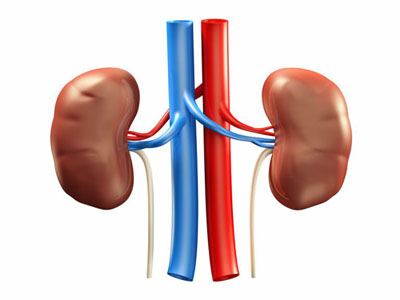The success rate following transplantation depends upon the closeness of the tissue match between donor and recipient. A kidney from a brother or sister with a "complete" match has a 95% chance of working at the end of one year. A kidney from a parent, child, or "half-matched" sibling has an 90% chance of working for at least one year. Finally, a cadaver donor kidney has an 80% chance of working forat least one year. Chronic lung disease increases the risk of pneumonia after transplantation. Smoking will also increase this risk, and all potential transplant patients are urged not to smoke. Patients who are significantly overweight are more likely to have complications in any surgical procedure, and should attempt to reduce before transplantation.
A history of other systemic diseases such as cancer or hepatitis may also affect the Success Rate5risk; indeed, many patients with a history of cancer or abnormal liver enzymes secondary to hepatitis may not be accepted for transplantation. All of these factors vary in importance in different individuals, and should be discussed with your doctor, as well as with the transplant surgeon when you have your transplant valuation.Many patients with insulin-dependent diabetes mellitus will eventually experience complications. Poor Kidney function is one of them (diabetic nephropathy).

For patients with diabetes who also have reached the dialysis stage, a successful kidney transplant can give them a better quality of life and improved rate of survival. A kidneytransplant, however, does not stopprogress of the diabetes. That is because diabetesinvolves the pancreas as well as the kidney. Simultaneous pancreas-kidney transplantation is recommended as a means to replace kidneys damaged by diabetes as well as to provide a healthy pancreas capable of normal insulin production.Pancreas and kidney for simultaneous transplantation are harvested from a cadaver donor.
Obstacles to dual transplant in India include a lack of suitable recipient and a cadaver donor programme that is still not well established.Pancreas is implanted in the iliac fossa with bladder drainage, opposite to the one where kidney is implanted. A simultaneous pancreas-kidney transplant has a distinct survival advantage over the patients who undergo kidney transplantation alone.Waking up Recovery Room After the surgery, you will wake up after the anesthesia wears off.




